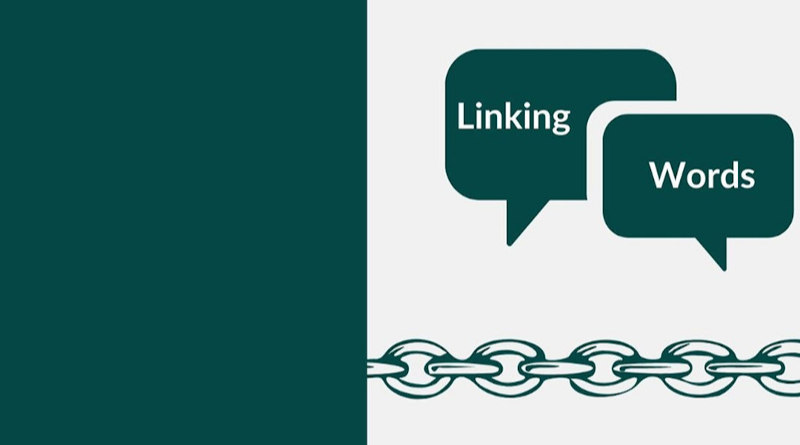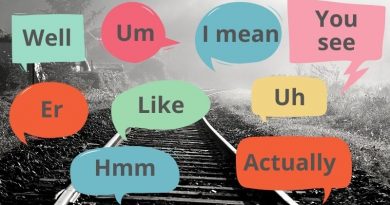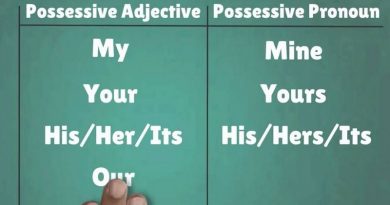Linking Words
Watch & Learn
Practise & Learn
Discourse markers – linking words
However, although, because, so, and time connectors
Quizzes & Games
Review & Learn
Discourse markers are very important to structure text or speech to connect sentences in a meaningful and logical way. They express contrast, reason, purpose, result, etc. Here are some examples:
By the way / incidentally
Used to change the subject, to say something you have just thought about that doesn’t have to be connected to what was being said before.
- Well, it has been a very productive meeting, don’t you think? By the way/Incidentally, what time is it?
- I’ll try to fix my car this afternoon. By the way/Incidentally, do you still have that screwdriver that I lent you?
Actually / in fact / as a matter of fact
Used to introduce information that might be in some way surprising or unexpected.
- I don’t like chicken. Actually/In fact/As a matter of fact, I have only ever eaten chicken once.
- Everybody thinks he has a terrible temper, but actually/in fact/as a matter of fact, he is very kind.
Anyway / in any case
Used to return to an earlier subject after a digression or to get to the most interesting point.
- It’s not so strange to lose documents. It happens to lots of people all the time. Anyway/In any case, we finally found the passports in …
Used to give a more important reason for something you are saying.
- I’m too tired to go, and it’s too late, and anyway/in any case, it’s too expensive.
As I was saying
Used to return to an earlier subject in the conversation after an interruption or digression.
- As I was saying, we could get up early and spend the whole day there.
After all
Used to introduce an additional point that supports or explains what you have just said.
- I might understand her better than you; after all, she is my wife.
- Don’t be too hard on him. After all, he is just a kid.
Used to say that something is true despite what is believed or said.
- He is not such a bad professional, after all.
At least
Used to introduce positive information when talking about something negative.
- Lots of people got injured in the accident, but at least nobody died.
- I finished last in the race, but at least I finished.
Used to reduce the effect of something we have said or to make something less certain or definite.
- He knows the president, or at least that’s what he says.
All in all
= Taking into consideration all the parts of a situation.
- There were some mistakes, but all in all, you did a pretty good job.
- Both TVs are great, but all in all, I think this one is better for you.
On the whole
= Generally
- On the whole, men tend to avoid talking about feelings.
- There has been some criticism, but on the whole, customers like what we offer.
Besides
Used to add additional information (informal)
- I think it’s a beautiful place; besides, it’s very cheap.
Furthermore
Used to add additional (and often more important) information (formal)
- Electric cars are becoming more powerful and energy-efficient. Furthermore, they are much cheaper than a few years ago.
What’s more
We use what’s more to add something interesting to what we have just said. It’s similar to furthermore but more informal.
- Scientists have found a big body of water under the planet’s surface. What’s more, they think it’s not the only body of water they will find.
- He said that the new season will premiere this September and what’s more, he confirmed that it will not be the last.
Obviously
Used to introduce a fact that is easy to see or understand.
- Obviously, without qualifications, it’s harder to get a good job.
Basically
Used to introduce the most important point or characteristic of something.
- Basically, what we do here is produce the plastic parts of the phone.
In other words
Used to say what has been said in simpler words.
- She said we should take a break and have time to ourselves; in other words, she dumped me.
That is to say
Used to explain or be more precise about something we have said. Similar to in other words.
- The best thing about music is its repeatability; that is to say, you can listen to the same songs again and again and never get bored.
Otherwise
Used after an order or suggestion to say what will happen if that order or suggestion is not followed.
- Be here at 8 o’clock; otherwise, you will miss your turn.
Regarding … / as regards … / as far as … is concerned
= About. Used to introduce a topic of conversation.
- Regarding/As regards the new player, we’ll have to decide if or when to sell him.
- As far as the new player is concerned, …
On the other hand
Used to introduce a contrasting fact.
- Cycling is good for your health, and it’s a sport that is gentle with your muscles and joints. On the other hand, there are many fatal accidents among cyclists.
It can be preceded by on the one hand:
- On the one hand, cycling is good for your health, and it’s a sport that is gentle with your muscles and joints. On the other hand, there are many fatal accidents among cyclists.
Whereas
We use whereas to compare and contrast two things or ideas. It means ‘while’ when it is used to express contrast.
- The north is cold, whereas the south is very hot.
- Whereas people used to aspire to have a big house, kids, pets, etc., nowadays, preferences tend more towards apartments.
Chart of Linking Words by Types
| • Undoubtedly • Indeed • Obviously • Generally • Admittedly • In fact • Particularly / in particular • Especially • Clearly • Importantly • It should be noted |
• And • In addition / additionally / an additional • Furthermore • Also • Too • As well as • Not only… but also • Apart from this • Besides • Moreover |
• Even though • (al)though • despite • in spite of • but • however • nevertheless • whereas • On the one hand/on the other hand. |
• First / firstly, second / secondly, third / thirdly etc • Next, last, finally • In addition, moreover • Further / furthermore • Another • Also • In conclusion • To summarise |
| • So • As a result • As a consequence (of) • Therefore • Thus • Consequently • Hence • Due to |
• For example • For instance • That is (ie) • Such as • Including • Namely |
• Similarly • Likewise • Also • Like • Just as • Just like • Similar to • Same as • Compare • Compare(d) to / with |
• So • As a result • As a consequence (of) • Therefore • Thus • Consequently • Hence • Due to |
| • For • Because • Since • As • Because of • With this in mind • In fact |
• If • In that case • In case • Unless |
• However • On the other hand • Meanwhile • Nevertheless • Nonetheless • Still • Although / even though • Though • But • Yet • Despite/in spite of • In contrast (to) / in comparison • While • Whereas • On the contrary |
• As a rule • For the most part • Generally/ In general • Overall • On the whole • In most case |
Clauses of contrast
However
However means ‘but’.
However is normally used at the beginning of a sentence, before a comma (,) and after a full stop (.) or a semicolon (;).
- We didn’t like the hotel. However, we had a good time.
- I would like to have a dog; however, my husband is allergic to dogs.
Although
Although means ‘despite the fact that’ or ‘but’.
Although can be used at the beginning or in the middle of a sentence. We do NOT use a comma after although; we use although + subject + verb.
- Although he had a bad leg, he still won the game.
- I passed the exam, although I hadn’t studied.
Clauses of reason
Because
We use because + subject + verb.
- We had to cancel the concert because it was raining.
- I didn’t call you because I didn’t want to worry you.
Because of
We use because of + noun.
- We had to cancel the concert because of the rain.
- Many shops had to close because of the economic situation.
Clauses of result
So
So is the most common connector to express result. It is normally used in the middle of a sentence after (,).
- We worked hard all morning, so I am very tired now.
- The TV is very expensive, so I don’t think I’ll buy it.




